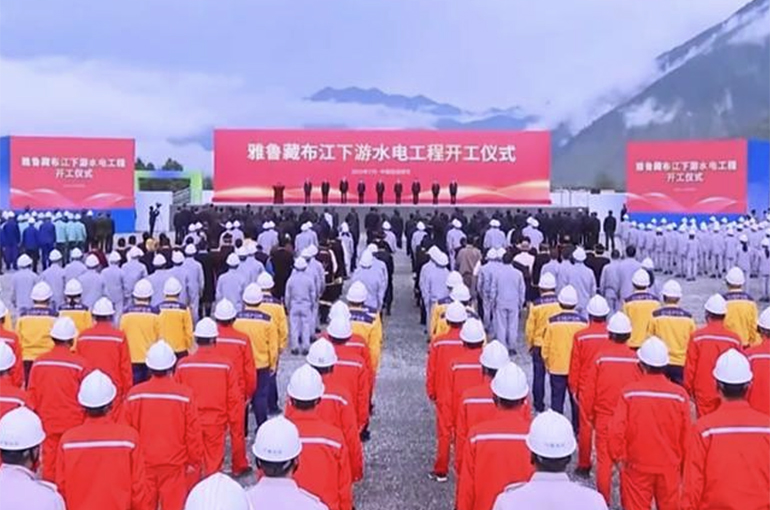 Work Starts on China’s USD168 Billion Mega Hydropower Project, Xinhua Reports
Work Starts on China’s USD168 Billion Mega Hydropower Project, Xinhua Reports(Yicai) July 21 -- China has broken ground on a CNY1.2 trillion (USD167.8 billion) hydropower project in the lower reaches of the Yarlung Zangbo River, according to Xinhua News Agency.
Premier Li Qiang announced the start of construction work on the project at a ceremony held in Nyingchi in China's western Xizang Autonomous Region on July 19, while Vice Premier Zhang Guoqing attended an inauguration event in Beijing for China Yajiang Group, which will build and run the project, Xinhua reported the same day.
The Yarlung Zangbo hydropower project, approved by the government last December, will play a crucial role in meeting China's twin carbon goals and addressing global climate change, the report noted. China is striving to achieve peak carbon in 2030 and carbon neutrality in 2060.
The project will take full advantage of the Yarlung Zangbo River’s abundant water resources and drive the development of surrounding new energy resources, creating a clean energy hub that integrates hydropower, wind, and solar power, according to Xinhua. When completed, it will have five cascade hydropower stations and mainly supply power for external use, the report said.
Work on the project will stimulate the rapid development of local industries, including engineering construction, logistics, and commercial services, creating a lot of new jobs, Xinhua said.
The project will also greatly enhance local infrastructure for electricity, water conservancy, and transport, strengthening development links between Xizang and other regions and bringing greater satisfaction, happiness, and security to the people of all ethnic groups in Xizang, the report said.
Yajiang, the project company, ranks 22nd on the State-owned Assets Supervision and Administration Commission’s list of China’s 99 central state-owned enterprises, right before China Energy Investment and after China Three Gorges, reflecting its importance in the country’s energy sector.
Zhang said the new company must carefully manage and implement engineering operations and construction, adhere to 'quality first' and 'safety oriented' standards, focus on scientific and technological breakthroughs and ecological protection, and promote engineering construction with a high sense of responsibility to history and the people.
In recent years, the SASAC has set up a number of new central SOEs, including China Resources Recycling Group and China Digital Logistics Information.
China will further restructure and integrate its central SOEs, focusing on industries and key areas related to national security and the lifeblood of the economy, public services, emergency response, and welfare, and strategic emerging industries, so as to maximize the dividends of reform, Lin Qingmiao, head of the SASAC's bureau of enterprise reform, said in January.
Editor: Futura Costaglione